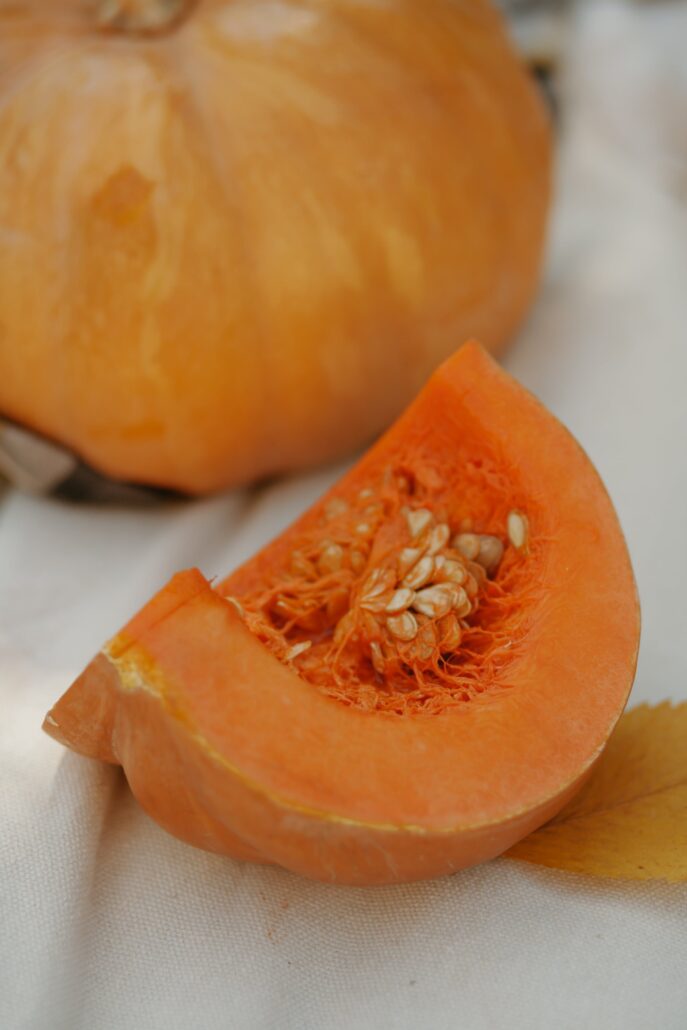Do Pumpkins Contain Lectins?
You may be wondering if pumpkins are high or low in lectins.
While there are a lot of unknowns when it comes to lectins, we do know that generally, there are many low lectin fruits and fruits tend to be low in lectins.
There also is some research on pumpkin seeds, which showed no lectin activity.¹
Since it seems that seeds are more likely to contain lectins than the fruit of a food, it would be reasonable to guess that pumpkin is also lectin-free.

Pumpkin Nutrition
Pumpkin contains a number of vitamins and minerals, as well as antioxidants. They tend to be high in carbohydrates, with some amount of protein and a very small amount of fat.
The orange color of pumpkins comes from the carotenoid known as beta-carotene, which is a precursor to Vitamin A, and also is known for giving carrots their orange color. The absorption of this nutrient is said to be improved by consuming fat with the meal, such as adding butter or olive oil.
Pumpkins also contain Vitamin C, and minerals, for example, Potassium like you often hear about in bananas, Magnesium, and Calcium.
The nutritional density of pumpkins can depend on a variety of factors, including the quality of the soil it was grown in. Generally speaking, organic can be a great thing to look for, and often may be a signal that there is an attention to the quality of the farming practices and a care for the food.
Pumpkin On A Lectin-Free Diet
Pumpkin is not a very common ingredient in food, although it is used frequently in places where sweet potato may be used, oftentimes in the Fall.
Pumpkin soup and pumpkin pie are perhaps two of the most common dishes. Pumpkin pie often is cooked with lectin-containing ingredients such as wheat, however, it is possible to make it with lectin-free baking options, such as blanched almond flour.
Resources:
1. https://sciendo.com/article/10.1515/sjecr-2016-0031
